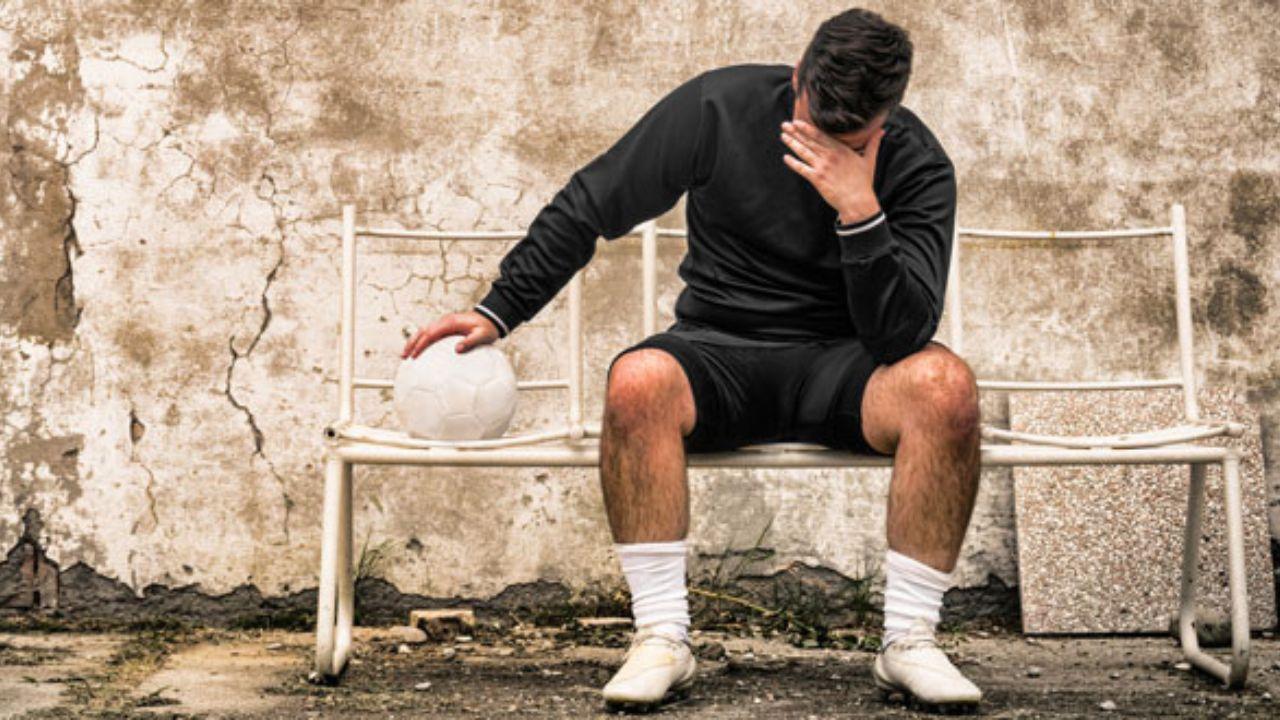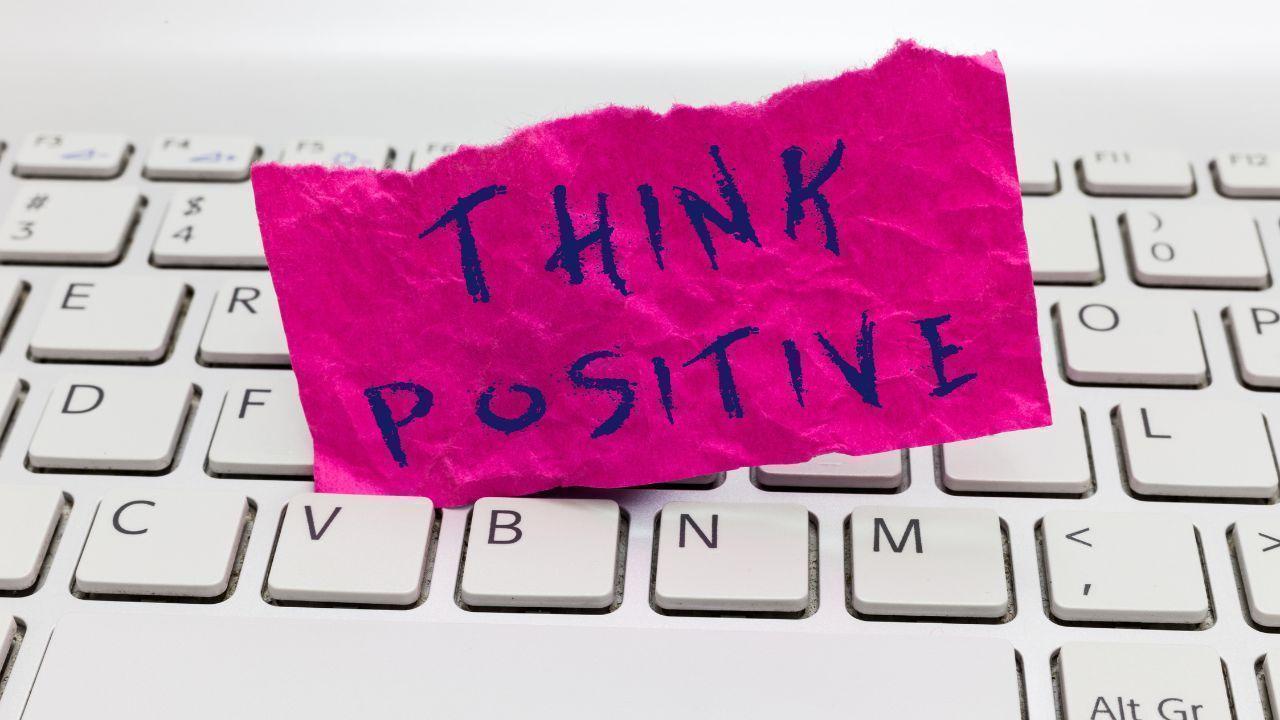
Playing sports is a fantastic way to have fun, stay fit, and make friends. However, sometimes athletes, whether they are kids, children, or adults, can feel stressed or anxious. Understanding the signs of stress and anxiety in sports can help you recognize how you feel and find ways to manage it.
Stress and anxiety in sports can be tricky, but understanding them helps. When athletes, whether kids, children, or adults, feel stress and anxiety in sports, it can make playing less fun and more challenging.
Stress is like a strong feeling when something important is happening. In sports, stress can come from wanting to win, doing your best, or making your coach and parents proud. For example, you might feel stress before a big game because you really want to play well.
Anxiety is a bit different. Anxiety is when you feel really worried or scared about something, even if it hasn’t happened yet. In sports, anxiety can happen when you think you might mess up or not do as well as you hoped. This worry can make it hard to focus on playing.
Imagine you’re about to play in a big soccer match. Stress and anxiety in sports might make your heart beat fast, your stomach feel funny, or your muscles feel tight. These are signs that your body is reacting to the pressure.
When we talk about stress and anxiety in sports, it's important to know that everyone experiences them differently. Some kids might get really nervous before a game, while others might feel fine. Both stress and anxiety in sports can happen to anyone, and that’s okay.

There are many reasons. Sometimes, it’s because they want to win very badly. Other times, it might be because they don’t want to let their team down or make mistakes. The competition itself can create stress and anxiety in sports, especially when playing against strong opponents.
To manage stress and anxiety in sports, it helps to talk about how you feel. Sharing your worries with a parent, coach, or friend can make the stress and anxiety in sports feel smaller. Doing things like deep breathing or imagining yourself doing well can also help reduce stress and anxiety in sports.
Remember, it’s normal to feel stress and anxiety in sports sometimes. Understanding these feelings and knowing ways to handle them can make playing sports more fun and less scary. So, next time you feel those butterflies in your stomach before a game, know that it’s just your body getting ready, and you have the tools to manage it!
Playing sports is a lot of fun, but sometimes, it can make athletes feel stressed or anxious. It's important to understand the common signs of stress and anxiety so you can recognize these feelings and know how to deal with them. Let's explore these signs in a way that's easy to understand, using simple language and repeating important keywords to help remember them.
Stress and anxiety in sports can make your heart beat really fast. This is because your body is getting ready to handle a challenge.
Feeling nervous can make you sweat a lot, even if it's not hot. This is a common sign of stress and anxiety in sports.
Sometimes, stress and anxiety can give you a stomach ache. You might feel like you have butterflies in your stomach, or you might need to use the bathroom more often.
Worrying about your performance or making mistakes is a big sign of stress and anxiety. You might think about what could go wrong all the time.
When you're feeling stressed and anxious, you might get annoyed or upset more easily. Little things that don't usually bother you might start to.
If you're feeling a lot of stress and anxiety, you might want to skip practices or games. Avoiding sports is a way some people try to handle their stress.
Stress and anxiety in sports can make it hard to sit still. You might feel like you need to keep moving all the time.
Thinking about sports and worrying can make it hard to sleep. You might find it tough to fall asleep or stay asleep because of stress and anxiety.
Athletes, whether they are kids, children, or adults, can feel stress and anxiety in sports for many reasons. Playing sports is exciting and fun, but it can also be challenging. Understanding why athletes feel stress and anxiety can help you recognize these feelings and deal with them better.
One major reason athletes feel stress and anxiety in sports is due to high expectations. Coaches, parents, and even the athletes themselves often set high goals. When you have to perform well in every game or practice, it can be stressful. Athletes feel stress when they think they must always win or be the best.
Fear of failure is another big reason athletes feel stress and anxiety. No one likes to make mistakes, but in sports, mistakes are part of the game. Athletes feel anxiety when they worry about missing a shot, losing a game, or letting their team down. This fear can make them feel very nervous before and during games.
Competition can be fun, but it can also make athletes feel stress and anxiety. When athletes compete, they want to do their best and win. However, competing against strong opponents can be stressful. Athletes feel stress when they are in important games or tournaments, especially when a lot of people are watching.
Athletes often feel stress and anxiety because of pressure from others. Coaches, parents, and teammates might expect them to perform well. When everyone around you expects you to be great, it can feel like a heavy burden. Athletes feel anxiety when they think about meeting these high expectations.
Sometimes, athletes set very high personal goals for themselves. While it’s good to have goals, setting them too high can cause stress and anxiety. Athletes feel stress when they push themselves too hard to achieve these goals. They might train for many hours, leaving little time for rest or fun, which increases stress.
Lack of confidence can also make athletes feel stress and anxiety. When athletes doubt their abilities, they worry more about performing well. Athletes feel anxiety when they don’t believe in themselves. This lack of confidence can make it hard to enjoy the sport and play their best.

Managing stress and anxiety in sports is crucial for athletes of all ages to perform their best and enjoy their activities. Here are effective strategies to help athletes, including kids and children, cope with stress and anxiety in sports:
It’s important to understand what stress and anxiety feel like. You might notice physical signs like tense muscles, a fast heartbeat, or feeling sweaty. Emotionally, you might feel worried, scared of making mistakes, or easily irritated. Recognizing these feelings is the first step in managing them.
Maintaining a positive mindset can help reduce stress. Focus on what you enjoy about your sport and the progress you’ve made. Celebrate small achievements and improvements, which can boost your confidence and motivation.
Set goals that are challenging yet achievable. Break them down into smaller steps so they feel more manageable. This can help reduce the pressure you might feel to perform perfectly every time.
Learning relaxation techniques can calm your mind and body before and during sports activities:
Don’t keep your feelings bottled up. Talk to a trusted friend, family member, or coach about how you’re feeling. Sharing your worries can make them feel less overwhelming and help you find solutions.
Stay focused on the present moment rather than worrying about past mistakes or future outcomes. This mindfulness can help you stay calm and perform better.
Remember to take breaks from intense training or competition to relax and have fun. Engage in activities outside of sports that you enjoy, whether it’s playing games, reading, or spending time with friends and family.
A healthy lifestyle can support your mental well-being:
If stress and anxiety become overwhelming and interfere with your daily life or performance, consider seeking help from a counselor or mental health professional. They can provide additional strategies and support tailored to your needs.
Playing sports is enjoyable, but athletes, whether kids, children, or adults, can experience stress and anxiety. Stress comes from the pressure to perform well or meet high expectations, while anxiety stems from worry about mistakes or failure. Physical signs like tense muscles and fast heartbeat, along with emotional symptoms such as worry and fear, indicate these feelings. Athletes may avoid games or struggle with sleep due to stress. Understanding these signs helps in managing stress through techniques like deep breathing and positive thinking. Seeking support from parents, coaches, or counselors is crucial for managing these challenges effectively.
While the information provided aims to educate and inform about stress and anxiety in sports, it is essential to consult healthcare professionals or qualified experts for personalized advice and treatment. DXB News Network encourages readers to prioritize their mental health and seek professional guidance as needed for specific concerns related to stress and anxiety management in sports.
Signs include tense muscles, fast heartbeat, sweating, stomachaches, worry about performance, fear of failure, irritability, avoidance of games or practices, restlessness, and sleep problems.
Athletes often feel stress due to high expectations, fear of failure, competition pressure, expectations from others, personal goals, and lack of confidence in their abilities.
Strategies include recognizing feelings, staying positive, setting realistic goals, practicing relaxation techniques like deep breathing and visualization, talking about feelings with trusted individuals, staying focused on the present, taking breaks, engaging in fun activities, maintaining a healthy lifestyle with exercise, proper nutrition, and adequate sleep, and seeking professional help if needed.
Athletes should consider seeking help if stress and anxiety significantly affect their performance, daily life, or mental well-being despite efforts to manage them through self-help strategies.
Supportive actions include listening to athletes' concerns without judgment, encouraging open communication, promoting a balanced perspective on success and failure, fostering a positive and encouraging environment, advocating for mental health awareness and support resources, and collaborating with professionals when necessary.
#trending #latest #SportsAnxiety #AthleteWellbeing #ManageStress #SportsPsychology #AthleteMentalHealth #StressManagement #AnxietySupport #MindfulnessInSports #HealthyAthlete #PerformanceAnxiety #breakingnews #worldnews #headlines #topstories #globalUpdate #dxbnewsnetwork #dxbnews #dxbdnn #dxbnewsnetworkdnn #bestnewschanneldubai #bestnewschannelUAE #bestnewschannelabudhabi #bestnewschannelajman #bestnewschannelofdubai #popularnewschanneldubai

Discover five effective ways to enhance your mental health through diet. From nutrient-rich foods and healthy gut tips to balanced blood sugar and mood-boosting...Read More.

Explore breathtaking European train journeys offering stunning vistas of Swiss Alps, Italian Riviera, Scottish Highlands, Norwegian Fjords, and Austrian Alps. D...Read More.
 Chennai YouTuber Sets Up Airport Shop for Gold Smuggling, Earns ₹3 Crore in Two Months
Chennai YouTuber Sets Up Airport Shop for Gold Smuggling, Earns ₹3 Crore in Two Months
A souvenir shop at Chennai airport has been revealed as a cover for a gold smuggling syndicate from
 Tragic Incident: Family of Seven Swept Away in Swollen Waterfall Near Mumbai
Tragic Incident: Family of Seven Swept Away in Swollen Waterfall Near Mumbai
Two returned safely; rescuers found three bodies. Search resumes at daybreak.
 Virat Kohli Video Calls Anushka Sharma & Kids After T20 World Cup Win: A Look at Their On-Field PDA Moments
Virat Kohli Video Calls Anushka Sharma & Kids After T20 World Cup Win: A Look at Their On-Field PDA Moments
Virat Kohli celebrates India's T20 World Cup win with emotional video call to wife Anushka Sharma, h
 India vs South Africa: Relive India's 2024 T20 World Cup Title Win in Images
India vs South Africa: Relive India's 2024 T20 World Cup Title Win in Images
India broke an 11-year drought by defeating South Africa in a thrilling final, remaining unbeaten in
 Delhi Airport Disputes 'Waterfall' Video at T1 as Old, Woman Provides Evidence
Delhi Airport Disputes 'Waterfall' Video at T1 as Old, Woman Provides Evidence
Delhi Airport dismisses T-1 waterfall video as old; activist provides evidence proving recent occurr
Feel Better: Eat These Foods for a Happier Mind

Discover five effective ways to enhance your mental health through diet. From nutrient-rich foods and healthy gut tips to balanced blood sugar and mood-boosting
Explore Europe's Beautiful Scenery: Top Train Routes for Amazing Views

Explore breathtaking European train journeys offering stunning vistas of Swiss Alps, Italian Riviera, Scottish Highlands, Norwegian Fjords, and Austrian Alps. D
Exploring Pyramids Outside Egypt: Hidden Marvels Revealed

Explore beyond Egypt with a journey through the world's most spectacular pyramids, from Mexico's Pyramid of the Sun to Sudan's Pyramids of Meroë. Discover archi
Taste OCRI Ka Salan & Boti Ka Salan: Authentic Indian Flavors

Explore the rich flavors of OCRI Ka Salan & Boti Ka Salan, traditional Indian dishes celebrated for their robust taste. Learn the recipes, ingredients, and cook
Scientists Discover Vitamin B6's Brain-Boosting Potential in New Study

Vitamin B6 is essential for brain function, but supplementing alone may not be enough to address deficiencies linked to memory issues and depression.
Amazing Bridges: Icons of Modern Engineering

Explore the world's most iconic bridges, from the Golden Gate Bridge to the Brooklyn Bridge. Discover their architectural marvels, historical significance, and
Dubai Chambers Teams Up with Aramex to Boost Business Services

Dubai Chambers has signed an MoU with Aramex (DFM: ARMX), focusing on enhancing business services through collaboration.
Why Sports Are Important: Strong Bodies, Strong Minds

"Discover why sports are crucial for health and happiness. Learn how playing sports builds strong bodies, boosts mental well-being, and fosters friendships. Exp
How to Stay Positive: 5 Easy Tips for a Happier Mindset

Discover 5 actionable tips to foster a positive mindset and embrace optimism in life. Learn how gratitude, mindfulness, positive influences, goal setting, and s
Orion Spacecraft Conducts Vacuum Test Spin on Earth Preparing for Space

On June 28, 2024, technicians used a 30-ton crane to move NASA’s Orion spacecraft from the FAST cell to the altitude chamber for testing.
Quantum Breakthrough: Liquid Crystals Host First SPDC Experiment

A pioneering study has shown the effective and adjustable application of liquid crystals in spontaneous parametric down-conversion (SPDC).
DP World Foundation's DH15 Million Donation Enhances Cancer Care at Hamdan Bin Rashid Hospital

DP World Foundation has contributed Dh15 million to Al Jalila Foundation to aid in the advancement of the Hamdan bin Rashid Cancer Hospital.
Why Green Bananas Are Healthier: Less Sugar, More Nutrients

Discover the benefits of eating green bananas over yellow bananas. From higher resistant starch and lower sugar content to improved digestive health and culinar
Germany Arrests Five Suspects Linked to Syria War Crimes Allegations

The individuals are accused of committing crimes against humanity and war crimes by killing and attempting to kill civilians prosecutors stated.
Israeli Mall Stabbing Two Men Injured in Apparent Terrorist Attack

According to Reuters, two individuals sustained injuries in what is suspected to be a "terror attack" at an Israeli mall on Wednesday.
UAE, US Collaborate on Gaza Ceasefire Efforts Ongoing Review and Discussion

His Highness Sheikh Abdullah bin Zayed Al Nahyan, the Foreign Minister
Samana Unveils 843-Unit Residential Tower in Dubailand

Samana Developers, headquartered in the UAE, has revealed the debut of their significant venture, Samana Ivy Gardens 2.
Priyanka Chopra, Nick Jonas, Deepika Padukone, and Ranveer Singh Top Today's Best-Dressed List

Priyanka Chopra in a beach look with Nick Jonas and Malti, and Deepika Padukone in chic maternity wear with Ranveer Singh.
Dubai Police Command Honest Taxi Driver for Returning Tourists Valuable

The Dubai Police's General Directorate of Criminal Investigation honored Mr. Sultan Sikandar Muhammad, an Uber taxi driver,
Poll: 32% of Democrats Call for Biden, 81, to Withdraw from Presidential Race

32% of Democrats think Biden should quit his re-election bid after a debate where he stammered and failed to counter Trump's false attacks.
3001E, 30 Floor, Aspin Commercial Tower, Sheikh Zayed Road, Dubai, UAE
+971 56 450 3476
info@dxbnewsnetwork.com
© DNN. All Rights Reserved.